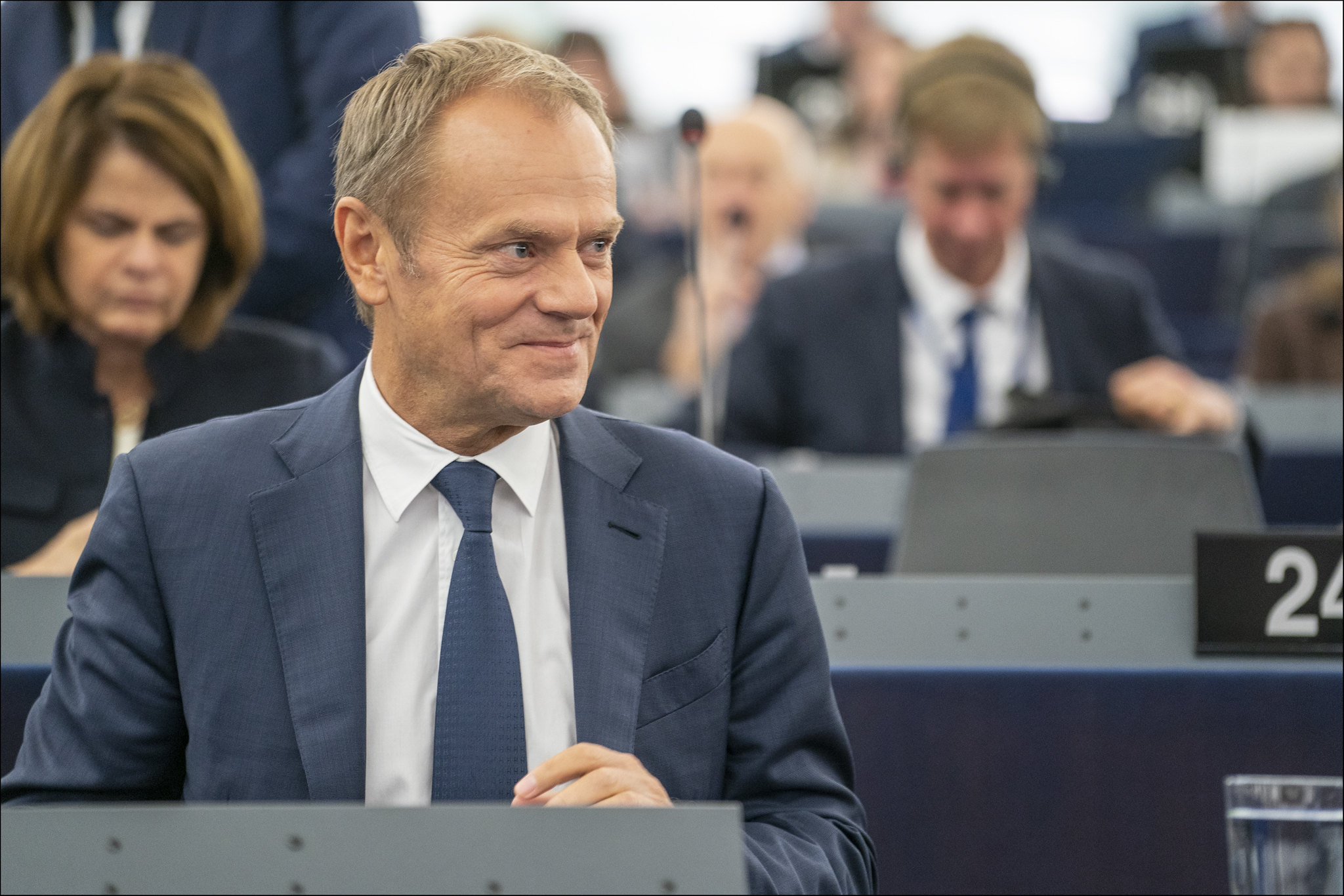

The EU will close its Article 7 procedure over democratic backsliding against Poland that was initiated in 2017 against the country’s nationalist government led by the former ruling party Law and Justice (PiS), European Commission (EC) President Ursula von der Leyen said on Monday, 6 May.
The EC could free up as much as EUR 137bn in blocked aid to Poland to Prime Minister Donald Tusk’s government, which toppled PiS after eight years in power, in October 2023.
Earlier this year Tusk presented a plan to restore judicial independence, a point of contention that had led to the EU threatening Poland that it could be stripped Warsaw of its voting rights in the 27-country bloc.
“Today marks the opening of a new chapter for Poland,” von der Leyen tweeted, after the EC officially recognised in a statement that Poland was committed to implementing the judgements of the Court of Justice of the EU and the European Court of Human Rights.
“Great news from Brussels today! Thank you for President Ursula von der Leyen for the cooperation and support!,” Polish Minister of Justice Adam Bodnar tweeted. “Poland is consequently bringing back rule of law. We are determined and devoted to our common European values.”
Tusk faces an uphill battle to reverse the previous judicial reforms, however, as PiS ally and Polish President Andrzej Duda will hold veto power over legislation, at least until Poles vote for a head of state next year. Duda approved the majority of the judicial reforms that proved the Article 7 procedure and has opposed Tusk government bills this year, declaring them “illegal”.
If and when the EC votes through its decision to lift the Article 7 procedure against Poland, it will still require agreement from the 26 other EU member states at the upcoming monthly Council of Ministers meeting on May 21.
Recent Posts
Baltic states ramp up air, missile defences
The Baltic states are stepping up their air, missile and drone defence capabilities, as Estonia,…
Polish bourse WIG index tops 100,000 points in historic first
Poland’s main stock market index, the Warsaw Stock Exchange (WIG), closed above 100,000 points for…
Polish PM declares national strategy to lead CEE, as nation celebrates 1,000th anniversary
Poland has launched a new national doctrine aimed at establishing the country as the dominant…
Prague expands airport, revamps tram service
Prague has launched two major transport infrastructure projects, expanding Vaclav Havel Airport and introducing a…
Poland tops employment rankings – OECD report
The EU’s employment rate reached a record high of 70.9% in the fourth quarter of…
Greece plans to repay Eurozone’s bailout loans whole decade in advance
Greece has announced plans to repay its first bailout loans a decade ahead of schedule,…


